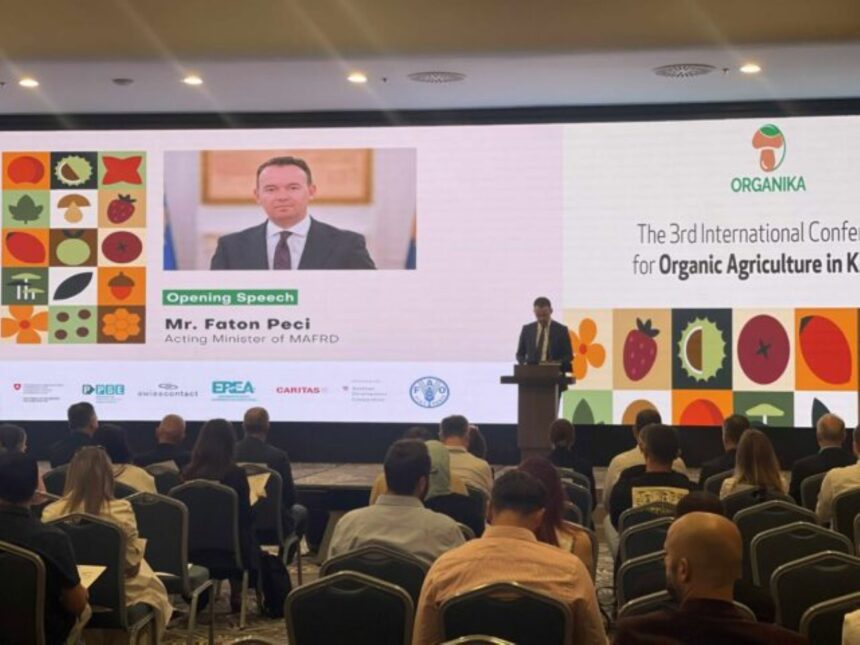Kosovo’s acting Minister of Agriculture, Forestry, and Rural Development, Faton Peci, announced that the organic agriculture sector has generated over 2,000 new jobs during his tenure. This statement came at the third International Conference on Organic Agriculture in Kosovo, organized by the “Organika” Association, focusing on “Sustainable collection of non-wood forest products: market, opportunities, and challenges of the sector.”
Peci highlighted the positive impact of government support policies on the sector’s growth, directly contributing to increased incomes and the well-being of rural communities.
Increased Financial Support Drives Sector Growth
“During this mandate, organic agriculture has created over 2,000 new jobs, directly contributing to the growth of incomes and the well-being of rural communities,” Peci stated. He attributed this success to “visionary policies and a fivefold increase in financial support for this sector.”
He explained that previous support of only €50 per hectare has now escalated to an additional €250 per hectare for certified organic areas, marking a 400% increase in institutional backing. This enhanced support has also “directly led to increased consumer awareness of the health and cosmetic benefits of organic products.” As evidence of this positive shift, Peci cited a 72% growth in the cultivated area of medicinal and aromatic plants.
Strong Export Performance and Future Plans
Peci also emphasized the organic agriculture sector’s strong orientation towards international markets. In 2024, 96.2% of organic products were destined for export, generating €17.6 million—a 6.6% increase compared to 2023, and directly influencing the country’s economic development.
“In Kosovo, organic agriculture is already an export-oriented sector, with around 20 certified leading companies,” he noted. Peci believes that “targeted policies, favorable agro-climatic conditions, rich biodiversity, and the inherited agricultural knowledge of our farmers are making our country ready to lead by example in the organic sector.”
He concluded by outlining programmatic frameworks, stating that the National Plan for Organic Agriculture 2023–2026 is being successfully implemented, and a new law on organic agriculture is being drafted to create sustainable foundations and foster innovation in the sector’s further development.
“Organika” Association’s Role
Fatmir Krasniqi, Chairman of the “Organika” Association, spoke about the organization’s journey from its founding to becoming a stable structure representing the sector. He noted that in its “12 years since establishment, it has grown into a structure representing over 40 farmers, members, collectors, businesses, and cooperatives, all committed to a common goal: sustainable sector development, promotion of our products in domestic and international markets, and quality assurance through organic certifications.”







